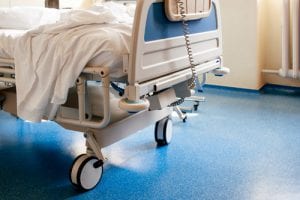Hello and welcome back to the last news summary before Christmas! We would all like to wish you a Merry Christmas and fantastic New Year. This summary will cover the highlights in health news from 12th to 18th December. This week has seen hospitals in England being told to put elective operations on hold to free up beds, a study that indicates the potential health benefits of the soft drink sugar tax and a rise in foreign holidays set to cause an increase in the number of skin cancer cases.
A study published in the Lancet Public Health Journal has found that the health of children will benefit the most from the sugar tax being brought in on UK soft drinks. The study predicted that if sugar was cut in the drinks with the highest sugar content due to the tax, levels of tooth decay, obesity and type 2 diabetes would fall. The Office for Budget Responsibility estimates that the new tax could add 18p to 24p to the price of a litre of fizzy drink. This equates to an additional 8p on a regular can of Coca-Cola. The study estimates that reducing the sugar content in high sugar drinks by a third and mid-sugar drinks by 15% could result in 140,000 fewer children and adults with obesity. Additionally, 269,000 cases of decaying teeth could be prevented and 19,000 fewer cases of type 2 diabetes every year.

Hospitals across England have been advised to postpone elective surgery over Christmas to ensure that enough beds are available for patients in need of emergency treatment. The NHS is often stretched over the winter months so NHS resources have advised hospitals to make more beds available between now and mid-January. Currently hospitals keep their bed occupancy at 95% across NHS England but hospitals are being advised to decrease this to 85%. The Shadow Health Secretary, Jon Ashworth has highlighted that this is a “short-term fix” which will only increase the number of people waiting for an operation. Hospital admissions usually increase over winter due to the cold weather and a rise in respiratory infections.
The number of people in England developing the two most common forms of skin cancer is set to increase due to people taking more foreign holidays. It is forecast that the number of cases of non-melanoma skin cancers will rise by 78% by the year 2025. This is thought to be due to the number of people going abroad and being exposed to harmful ultraviolet rays from the sun. Treating the skin cancer epidemic could cost the NHS up to £465 million per year by 2025. Experts have warned that currently the NHS is under-equipped to cope with the rise in skin cancer cases due to a shortage of consultant dermatologists.
Words: Joelle
